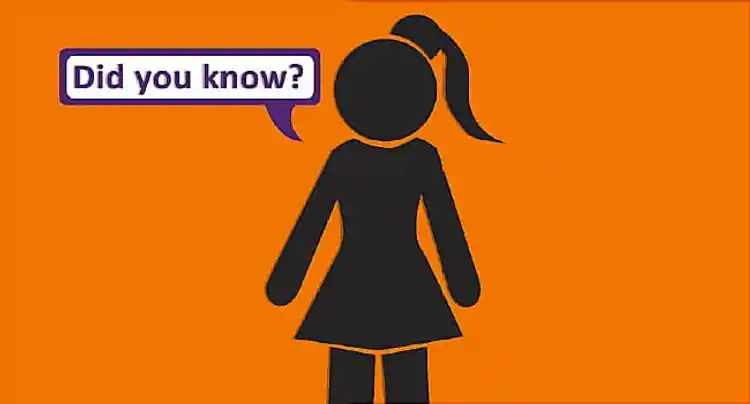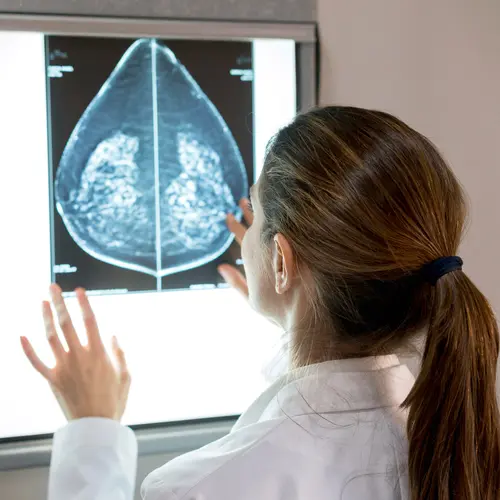Women, What’s Your Body Telling You?

Hide Video Transcript
Video Transcript
[MUSIC PLAYING]
Cardiovascular disease kills more women than all the other cancers combined in this country, but it doesn't typically cause symptoms until disease had already set up shop inside the body. Those classic symptoms of crushing chest pain or pressure that you hear about all the time don't necessarily appear in women. They may have much more vague symptoms that are progressing over time or worsening over time, such as feeling more fatigued or not being able to do their regular activities without getting tired out faster.
If someone's noticing a changing pattern with headaches -- they used to be a 5 out of 10. They've been escalating over the previous month. If someone's experiencing increased shortness of breath, or they've had previous episodes of chest pain that turned out to not be concerning but now that pain has changed -- it's worsening with physical activity -- that's a red flag to me that we should be focused on her heart.
Another area of health care that I think women should be more aware of is their reproductive system. Most women actually have regular periods. If a woman is experiencing a change in those periods -- either they're not as regular as they used to be, they're having spotting in between their periods, or they're noticing a change in that flow -- it's more painful, it's lasting longer, they're feeling tired -- those are changes or symptoms that I'm going to want to know about.
There are actually a wide variety of symptoms that women can experience that are specific to the breast tissue. Besides the things that a woman might feel when she's doing a self breast exam, I would want to know if she's experiencing any aches or pains that continue to happen beyond just a few days. And then if a woman is experiencing a discharge of fluid that's coming from the nipples, I would want to look into it a little bit further to make sure that there's not a problem there.
Women can experience more digestive issues than men over time. They often will have triggers that change the way their bowels are moving. They may or may not have cramping or bloating that comes and goes. Sometimes there's a pattern when it comes to foods. Other digestive issues that can happen like reflux, which you can experience often as heartburn or a sore throat or cough -- symptoms can be ambiguous and confusing.
Not all symptoms are caused by serious issues. When you're at home by yourself and you're experiencing symptoms or a pattern in those symptoms that's different than how you've been feeling, those are types of symptoms or classes of symptoms that I want a woman to bring to me in the office so we can help figure out what's going on.
SARITA PRAJAPATI
I think it's really important for women to know their bodies. If the way your body looks and feels, then you're much more likely to notice if there's a change that's happening. There are a couple of specific areas that women should pay some more attention to when it comes to their own health care and their bodies. Cardiovascular disease kills more women than all the other cancers combined in this country, but it doesn't typically cause symptoms until disease had already set up shop inside the body. Those classic symptoms of crushing chest pain or pressure that you hear about all the time don't necessarily appear in women. They may have much more vague symptoms that are progressing over time or worsening over time, such as feeling more fatigued or not being able to do their regular activities without getting tired out faster.
If someone's noticing a changing pattern with headaches -- they used to be a 5 out of 10. They've been escalating over the previous month. If someone's experiencing increased shortness of breath, or they've had previous episodes of chest pain that turned out to not be concerning but now that pain has changed -- it's worsening with physical activity -- that's a red flag to me that we should be focused on her heart.
Another area of health care that I think women should be more aware of is their reproductive system. Most women actually have regular periods. If a woman is experiencing a change in those periods -- either they're not as regular as they used to be, they're having spotting in between their periods, or they're noticing a change in that flow -- it's more painful, it's lasting longer, they're feeling tired -- those are changes or symptoms that I'm going to want to know about.
There are actually a wide variety of symptoms that women can experience that are specific to the breast tissue. Besides the things that a woman might feel when she's doing a self breast exam, I would want to know if she's experiencing any aches or pains that continue to happen beyond just a few days. And then if a woman is experiencing a discharge of fluid that's coming from the nipples, I would want to look into it a little bit further to make sure that there's not a problem there.
Women can experience more digestive issues than men over time. They often will have triggers that change the way their bowels are moving. They may or may not have cramping or bloating that comes and goes. Sometimes there's a pattern when it comes to foods. Other digestive issues that can happen like reflux, which you can experience often as heartburn or a sore throat or cough -- symptoms can be ambiguous and confusing.
Not all symptoms are caused by serious issues. When you're at home by yourself and you're experiencing symptoms or a pattern in those symptoms that's different than how you've been feeling, those are types of symptoms or classes of symptoms that I want a woman to bring to me in the office so we can help figure out what's going on.
